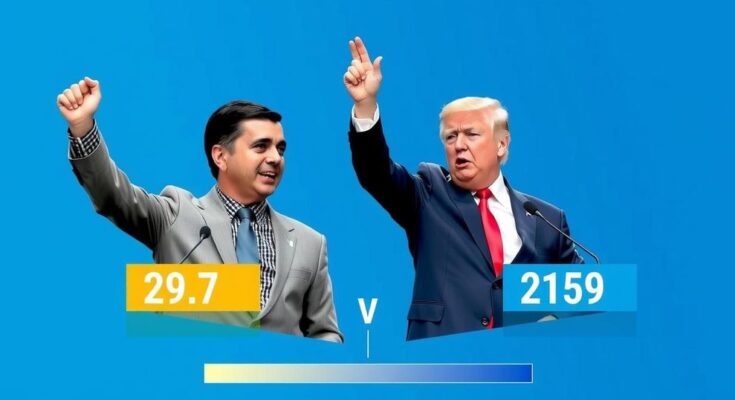Uruguay’s presidential runoff is a tight race between Álvaro Delgado of the National Party and Yamandú Orsi of the Broad Front, following a closely contested initial election. Both candidates are addressing rising crime rates, with Delgado promising tough measures and Orsi advocating community-oriented solutions. The election reflects moderate political sentiment over populist extremes, emphasizing negotiation over confrontation. The outcome will significantly impact the future governance and socio-economic policies in Uruguay.
Uruguay’s presidential runoff has evolved into a closely contested election, marking a departure from prior predictability. On a day of crucial voting, the conservative governing party’s candidate Álvaro Delgado faces off against Yamandú Orsi from the leftist Broad Front, following a first round where neither secured a majority. The Broad Front previously governed for 15 years, implementing progressive laws such as the legalization of abortion, same-sex marriage, and cannabis sales. In the initial round, Orsi garnered 44% of the votes, while Delgado’s National Party received 27%, bolstered by support from other conservative allies. Polling indicates that there is virtually no difference between the candidates, with a significant percentage of voters remaining undecided.
Both candidates find themselves navigating voter concerns surrounding rising crime rates, a pressing issue in a nation that has historically been viewed as stable and safe. Delgado has positioned himself with tough measures and facilities for public safety, while Orsi advocates for community-based solutions. With Delgado serving as the Secretary of the Presidency under the current administration, he aims to maintain the status quo supported by President Lacalle Pou, who has witnessed a robust economy, despite facing past corruption scandals.
Conversely, Orsi inherits the legacy of former President Mujica and focuses on pragmatic reforms rather than radical policy shifts, seeking to foster a collaborative approach within government. Acknowledging the need for cooperation, both candidates have expressed intentions to maintain a respectful governance regardless of the election’s outcome. This political environment reflects a lack of ideological extremes, presenting an opportunity for participants in the democratic process to engage maturely on issues critical to the populace’s welfare.
Uruguay’s political landscape has been characterized by a competitive atmosphere, particularly following the Broad Front’s long tenure in power. The current election follows a significant shift, as the center-right coalition, which has held office since 2019, battles to sustain its governance against a revived left-wing contender. The ongoing crises of crime and income inequality have overshadowed the elections, prompting discussions that are more analytical than incendiary compared to populist movements in other regions. With high stakes and potential for shifts in socio-economic policies, the runoff is a pivotal moment for Uruguay’s future governance.
The runoff election in Uruguay presents a decisive moment for the nation’s political direction, with Álvaro Delgado and Yamandú Orsi seeking to address voter concerns around crime and economic stability. As both candidates navigate a historically low-polarization environment, their approaches reflect a preference for collaborative governance. The outcome may redefine the balance between conservative and progressive ideologies within Uruguay, influencing socio-political dynamics well beyond the election.
Original Source: www.cnn.com




